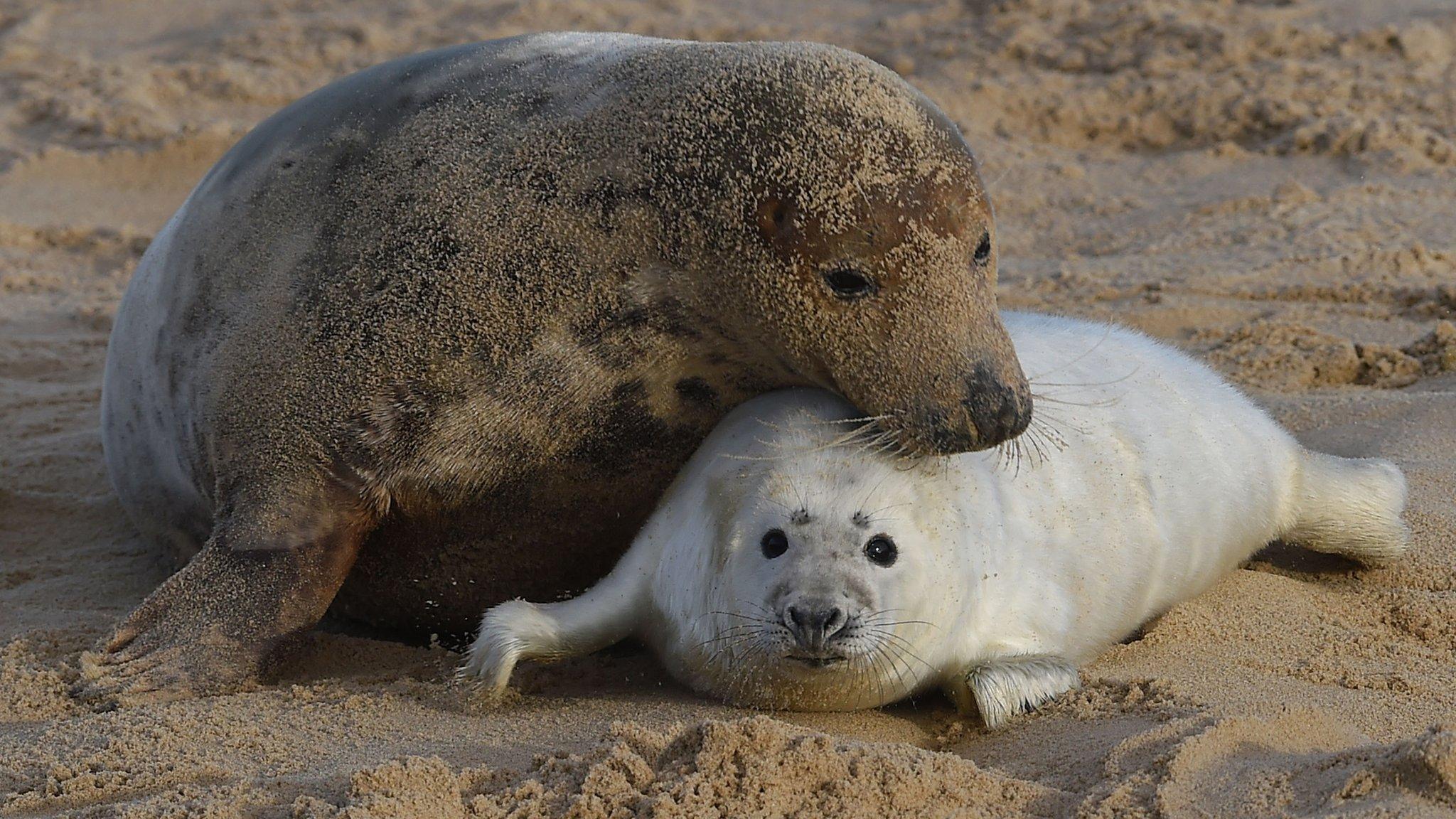Horsey seals: Record season for births and litter injuries
- Published
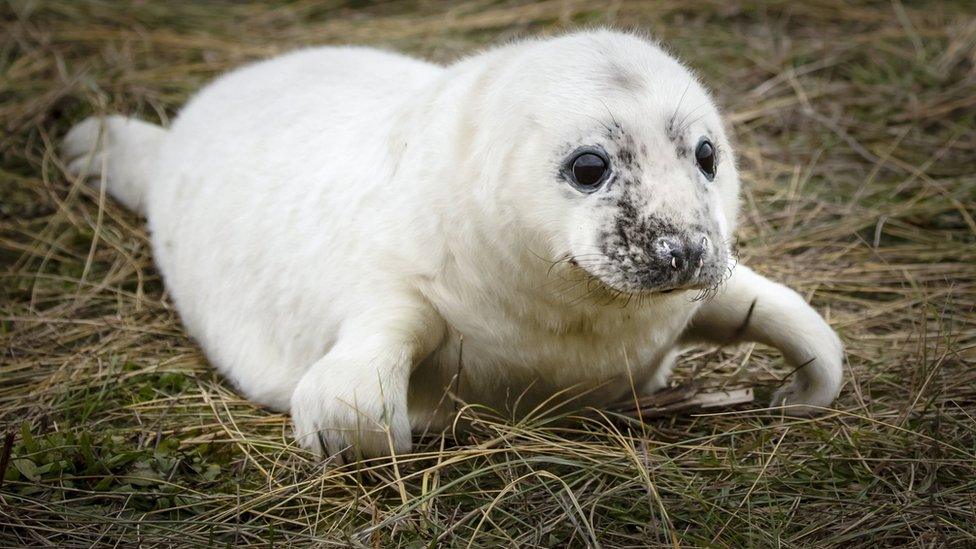
The pupping season at Horsey, between Great Yarmouth and Cromer, came to a close last month, with adult seals now visible on the beaches
The number of pups born in a grey seal colony has risen again this winter, but there was a record number of animals injured by netting and other litter.
Friends of Horsey Seals, which monitors the coast from Winterton to Horsey in Norfolk, said 2,136 newborns arrived this winter, up 247 on last season.
Volunteers rescued 17 seals which were entangled in netting or plastic in the past 12 months.
Twelve required veterinary treatment, up from 10 in the previous year.
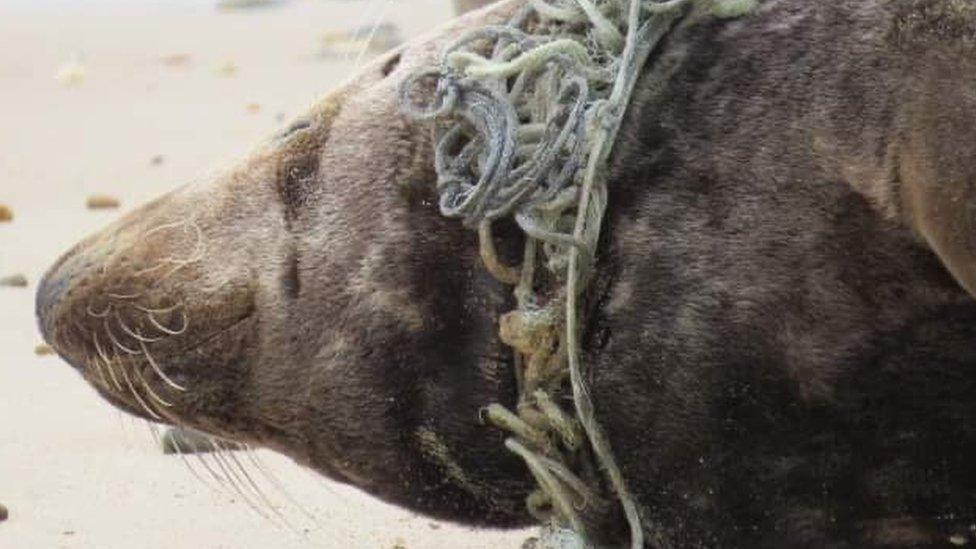
Colossus had several feet of netting wrapped around his neck
Colossus, a male, was rescued in December and had fishing net removed from its neck at the RSPCA wildlife hospital at East Winch.
Volunteer David Vyse said his injuries were "terrible", with a deep wound caused by the rope cutting into his neck.
The seal is recovering well and is expected to be released in the next couple of weeks, he added.
A young female named Flowerpot was found at Horsey with her head wedged in a plastic object in October, and has since been released, and previously seals have had plastic flying rings embedded in their necks.
About six seals have recently been seen in the sea or on the beaches entangled in rope or netting.
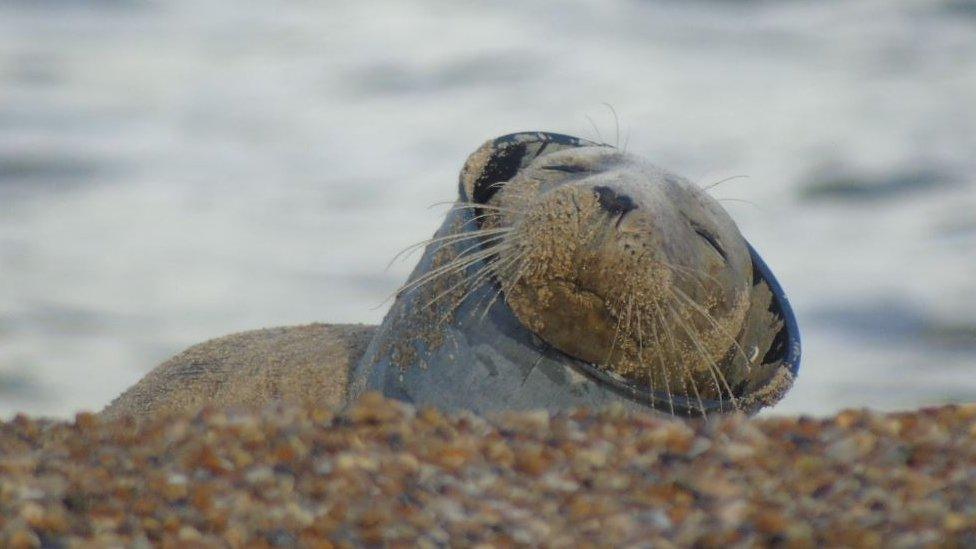
Flowerpot has since been released at Horsey after treatment at East Winch
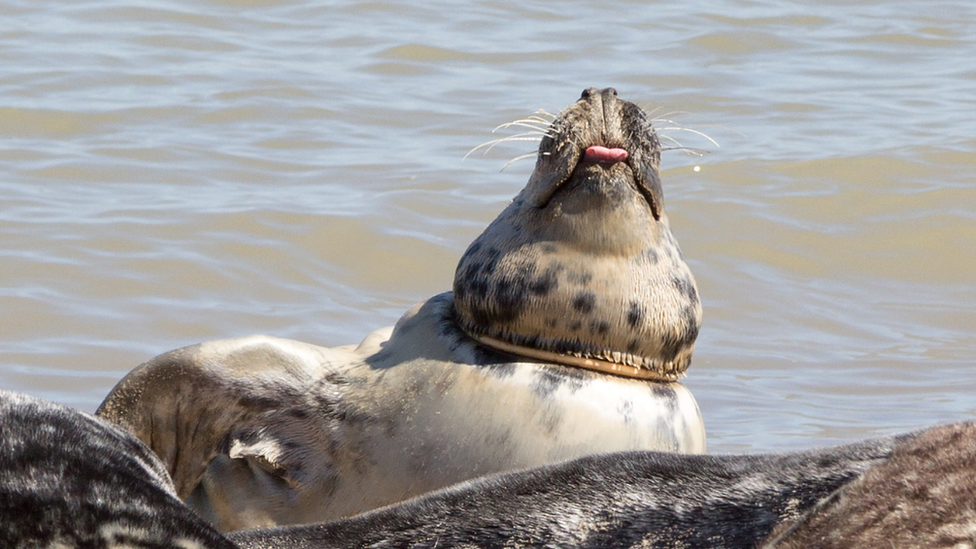
Seals with rubbish around their necks become unable to fish and are weakened by infection - this grey seal was pictured in 2018
Volunteers wait until an animal is weakened and several feet from the shore before attempting a rescue.
"The pup numbers going up is terrific news, but it does mean more work for us," added Mr Vyse, who is looking for extra wardens for next winter.
"This season we had 100,000 people visit Horsey alone - it's one of Norfolk's biggest tourist attractions now.
"I'd say 99.9% of people are respectful but you do get the odd one who strays on to the beach and too close to the seals."
The grey seal colony at Blakeney Point, further west on the Norfolk coast, also had a record season with 3,399 pups born - a 13% increase on last year.
- Published11 December 2019
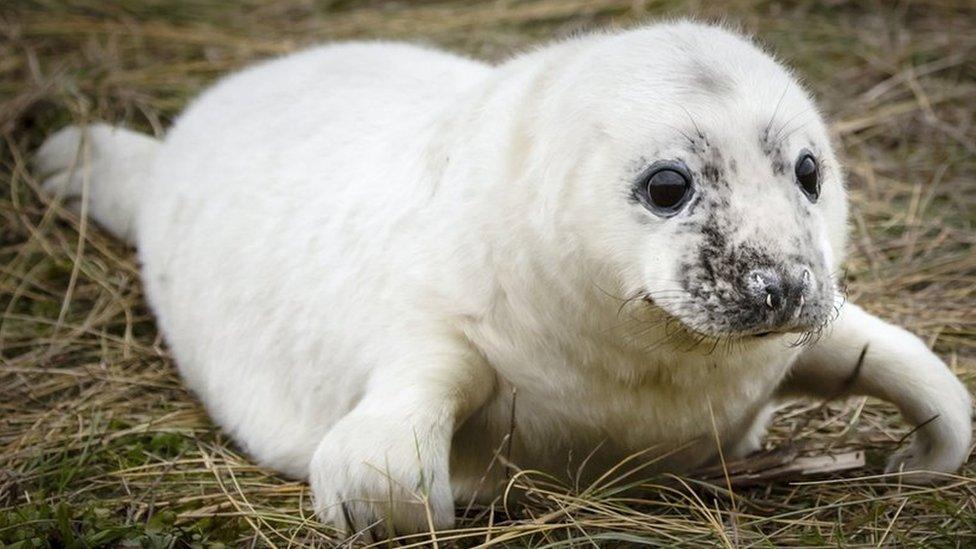
- Published4 December 2019
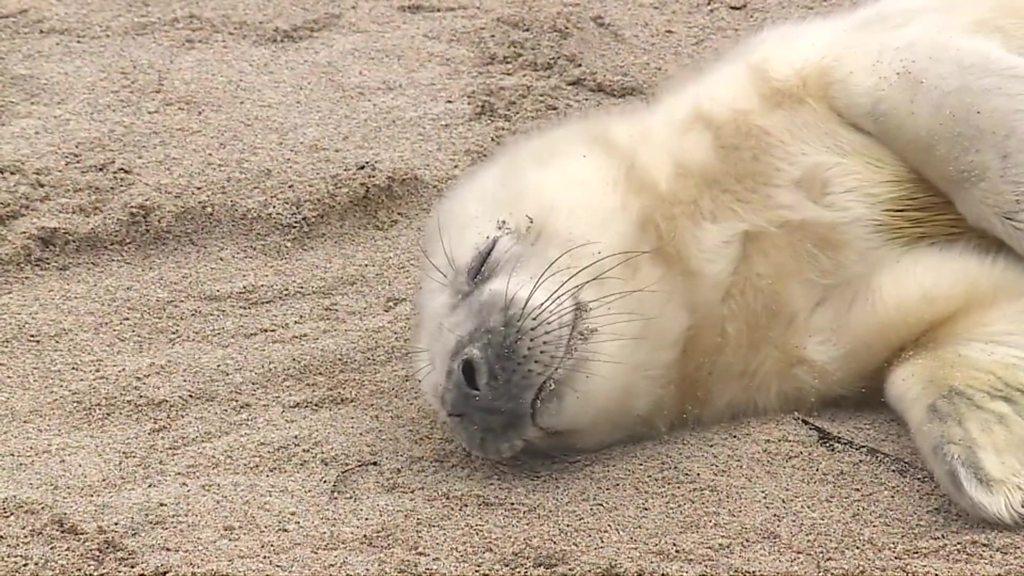
- Published12 November 2019
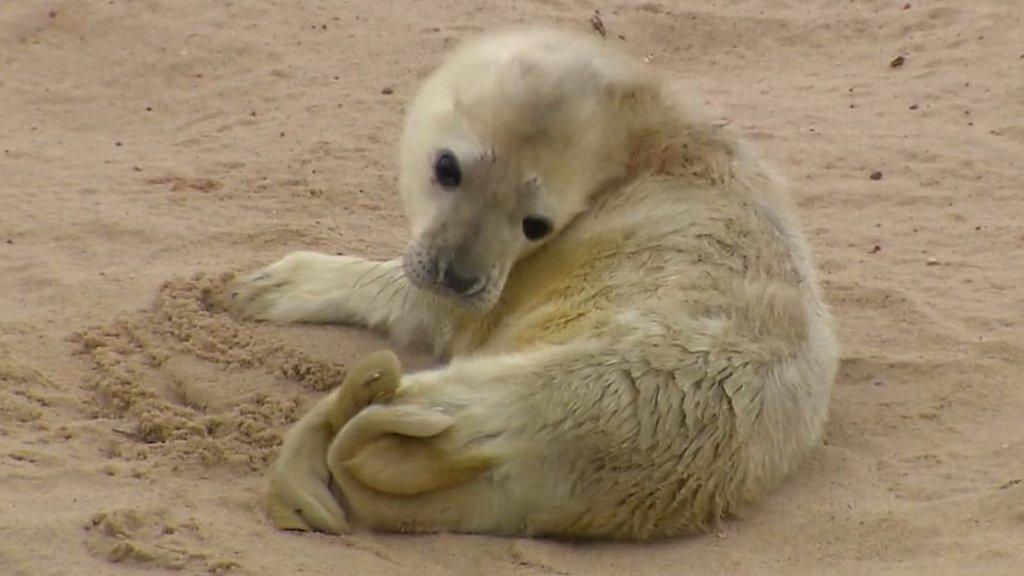
- Published24 October 2019

- Published11 October 2019
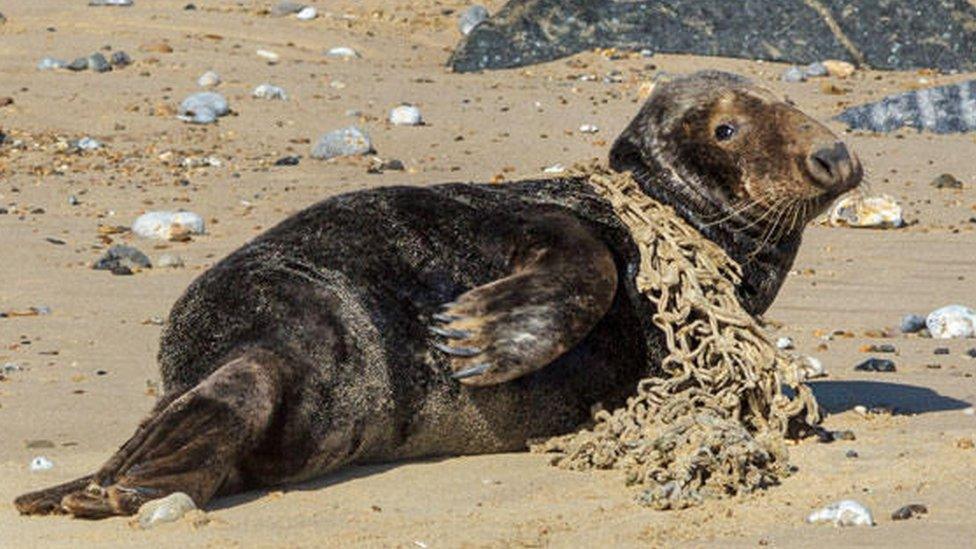
- Published30 October 2018
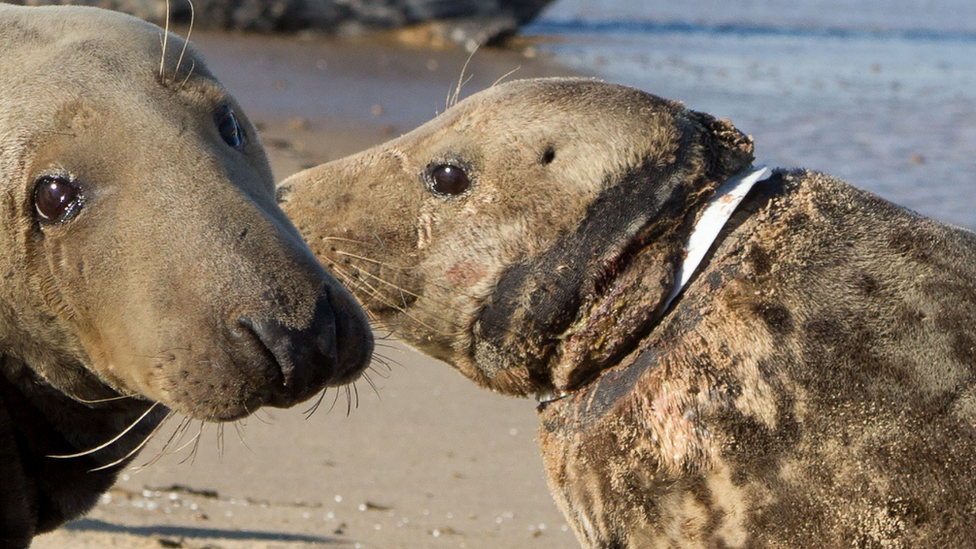
- Published14 December 2017
